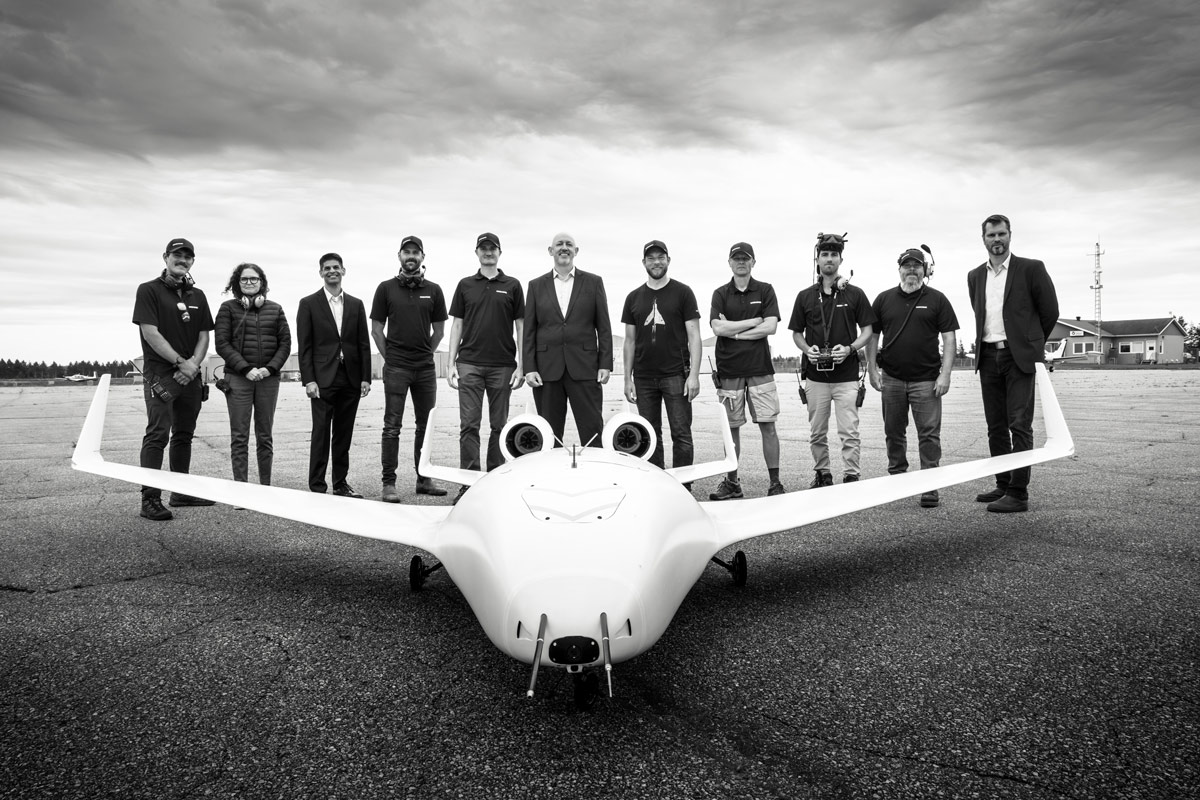Bombardier unveiled the first of many academic collaborations on its trailblazing pan-Canadian and sustainability-focused EcoJet Research Project. Bombardier’s long-standing partnership with the University of Victoria Centre for Aerospace Research (CfAR) and British Columbia’s SME Quaternion Aerospace was announced in a press conference hosted by the University. The three organizations presented how their shared vision of the positive role innovation plays in the sustainable transformation of the Canadian aerospace industry resulted in a fruitful collaboration on the flight-testing program of Bombardier’s EcoJet project.

The multi-year EcoJet research project that debuted around 15 years ago kicked off its first phase of flight testing in 2017 with 8-foot-span prototypes and is now leveraging a flight vehicle more than twice as large. The complementary world-renowned expertise of Bombardier as a business aircraft OEM and of the CfAR and Quaternion Aerospace with scale vehicles strengthen the innovation capacities of all parties while fostering new knowledge about the next generation of more sustainable aircraft.
“Bombardier is proud to support forward-looking aerospace research all while involving a broad network of academic institutions,” said Stephen McCullough, Senior Vice President of Engineering and Product Development, Bombardier. “Now that we have publicly disclosed some aspects of the first phases of the EcoJet flight-testing program, it is important for us to give credit and to share the phenomenal response with our partners who are instrumental to this dimension of the research project. Collaboration between local businesses and top academic institutions is key in nurturing a strong and thriving Canadian aerospace industry. Our hand-in-hand work with the University of Victoria is a meaningful example of such innovation pathway that stimulates coast-to-coast skill transfer and talent development.’’
“For more than a decade, the Centre for Aerospace Research has grown from strength to strength, and our cutting-edge work with Bombardier represents the most significant research partnership in our history,” said Afzal Suleman, Canada Research Chair, Director and Professor, Centre for Aerospace Research, University of Victoria. “Through this collaboration, our students and researchers are gaining critical real-world skills while helping to push forward the frontiers of sustainability and redefining the boundaries of what is possible for the future of the global aviation industry.”
Piloted by Bombardier’s market insight and vision for a future generation of aircraft, the collaborative work on the design and fabrication of the EcoJet flight test vehicles involves multidisciplinary teams, consisting of Québec-based Bombardier engineers and technicians, along with BC researchers, engineers and students.
All flight campaigns on BWB scale test vehicles, which have been exploring the prototypes’ behavior in free flight and perfecting their radically different flight control laws, are the fruit of this tight collaboration.
“We are thrilled to contribute our university’s expertise to Bombardier’s groundbreaking EcoJet Research Project, a tangible example of UVic’s dedication to a brighter future for all through innovation,” said Dr. Kevin Hall, President, University of Victoria. “This collaboration marks a significant step forward in our commitment to sustainability, a greener future for the aviation industry, and the development of cutting-edge technologies that advance the frontiers of science and engineering right here in British Columbia and throughout Canada.”
Through connecting university education and training with potential commercialized application, Bombardier continues to pursue its EcoJet project objectives to create significantly more sustainable aircraft and to mature powerful technologies that will redefine the future of aviation.

